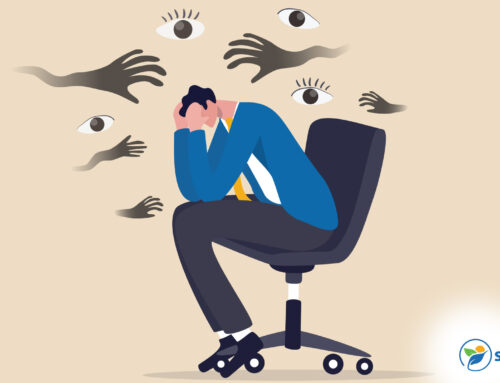If there’s one topic that’s become increasingly prevalent over the past few years, it’s mental health. In the past, discussing mental health was considered taboo. While that stigma hasn’t fully disappeared, the subject has become much more accepted by society. As a result, more people have sought treatment.
One common mental health treatment is Lexapro (escitalopram). Known to affect mood and behavior, Lexapro is an antidepressant commonly used for anxiety and depression. While it can improve symptoms in certain patients, it may also result in unwanted side effects. In this article, we’ll examine some of these effects in closer detail. We’ll also review ways to help ensure your mental health treatment is as safe as possible.
How Does Escitalopram Work?
Before we examine the side effects of escitalopram, let’s go over how it works. As mentioned above, it’s a well-known treatment for anxiety and depression, which are two of the most common mental health disorders. Every year, depression affects almost 10% of Americans, and anxiety affects 18%. Co-occurrence is also common, with 60% of anxiety patients experiencing depression symptoms and vice versa.
Although they’re two different conditions, anxiety and depression have many symptoms in common, including poor mood, difficulty concentrating and self-isolation. To treat these symptoms, doctors may prescribe antidepressants.
One of the most commonly selected medications is Lexapro. It belongs to a specific class of antidepressants called selective serotonin reuptake inhibitors (SSRIs), which work by increasing levels of serotonin — one of the “feel-good hormones” — in the brain. SSRIs play a role in functions such as memory, sleep and happiness. In other words, elevating serotonin levels can improve overall mood.
Common Side Effects of Lexapro
Ultimately, escitalopram influences your brain to minimize depression and anxiety symptoms. Unfortunately, this process can come with some side effects. One of the most common effects is weight changes, which prompts the question: “Does escitalopram cause weight loss?” While symptoms vary, it’s common for people on Lexapro to experience weight loss. This is because serotonin can suppress appetite, which may make people eat less than usual.
It’s important to note that while some patients notice weight loss, others on Lexapro experience weight gain. However, this is often just a side effect of behaviors linked to depression, such as overeating or inactivity. In addition to weight changes, escitalopram patients may notice the following side effects:
- Headaches
- Nausea
- Dry mouth
- Sweating
- Nervousness and restlessness
- Fatigue
- Diarrhea
- Difficulty sleeping
- Sexual side effects
Generally, side effects diminish once your body becomes used to the medication.
Less Common But Serious Side Effects of Lexapro
Along with the aforementioned symptoms, certain Lexapro users may experience less common, but serious, side effects. These include:
- Low sodium blood levels (linked to headaches, memory problems and fatigue)
- Eye problems (including vision changes and eye swelling)
- Teeth grinding
- Confusion
- High fever
- Severe muscle tightness
- Convulsions and seizures
If you notice any of these symptoms, you should contact your medical provider for assistance.
Managing and Coping With Side Effects
From stomach problems to headaches and nausea, there are many potential side effects of Lexapro. Most of these don’t require medical attention and go away after a week or two. However, they can still be difficult to contend with. Here are some suggestions on how to cope with side effects.
- Make healthy lifestyle changes. Many side effects can be managed with lifestyle adjustments. For example, maintaining a healthy diet and exercise routine can prevent large weight changes, while taking naps and getting enough sleep can help with fatigue.
- Avoid certain substances. Substances such as alcohol can clash with antidepressants and worsen symptoms. Similarly, some medications don’t mix well with Lexapro. Be sure to inform your doctor of any medications and supplements you’re currently taking.
- Stay hydrated. Dehydration can worsen side effects such as nausea and dry mouth. Be sure to drink plenty of water and avoid diuretics such as alcohol and caffeine.
- Practice self-care. Overcoming depression and anxiety isn’t easy. During the process, it’s important to consider your own needs by indulging in self-care. This may include meditating, going for walks and engaging in hobbies.
Taking these steps can make the possible side effects of escitalopram much more manageable. While engaging in these coping mechanisms, make sure you’re also monitoring your symptoms and looking out for serious side effects (such as confusion or convulsions). And keep your health care provider updated on your journey.
The Role of Health Care Providers in Lexapro Treatment
Your health care provider plays a major role in your Lexapro treatment. They’re responsible for prescribing the right amount and staying informed on your symptoms and progress. Here are a few of their main duties.
- Providing a diagnosis. An accurate diagnosis is key to effective treatment. Health care providers should start by asking about your anxiety or depression symptoms and medical history. Once they have a comprehensive overview of your mental health, they can determine whether Lexapro is the right treatment for you.
- Monitoring progress. After Lexapro has been prescribed, your health care provider should monitor your progress. In other words, are your anxiety or depression symptoms improving? Are you experiencing side effects? How extensive are the side effects? Based on the answers to these questions, they may adjust your dosage or switch your medication.
- Recommending supportive services. While monitoring your symptoms and progress, your health care provider may notice that you need supplementary services. For example, they might recommend combining your antidepressants with psychotherapy or a support group.
- Addressing withdrawal. Depending on your side effects, you may need to stop using Lexapro at some point. When the drug is removed from your system, it’s possible to experience withdrawal symptoms, such as dizziness, vomiting and nightmares. If symptoms are severe, your health care provider should ensure you have the support you need.
Ultimately, you want a health care provider who supports you at every step, from the initial diagnosis to any side effects or withdrawal.
At Sunlight Recovery, we have a team of mental health experts who are highly experienced in treating patients with anxiety and depression. In addition to our mental wellness treatments, we offer medical support for those experiencing withdrawal symptoms. If you’d like to learn more about our programs, contact our team today. With treatment, you can achieve a happier, healthier future.






